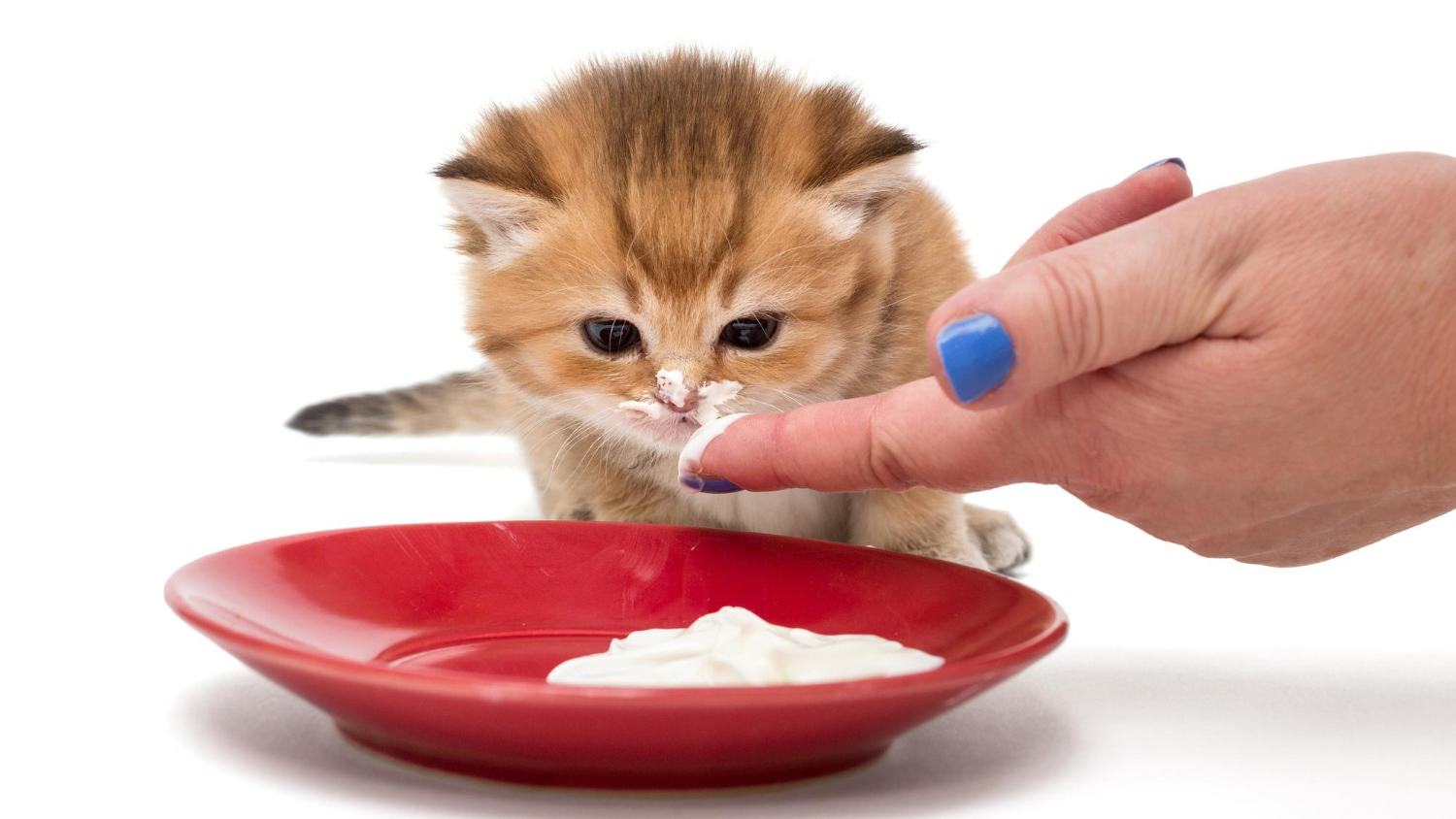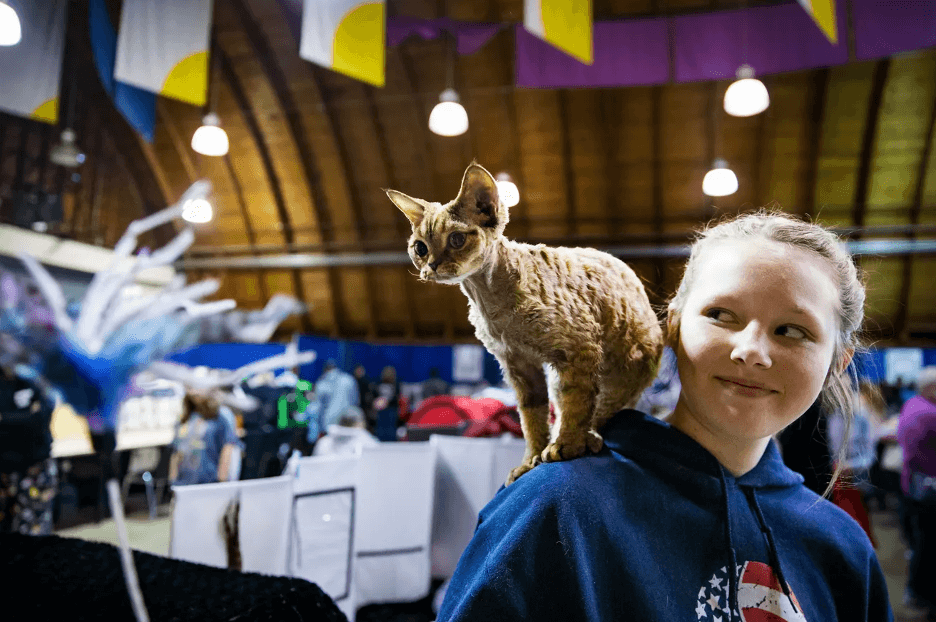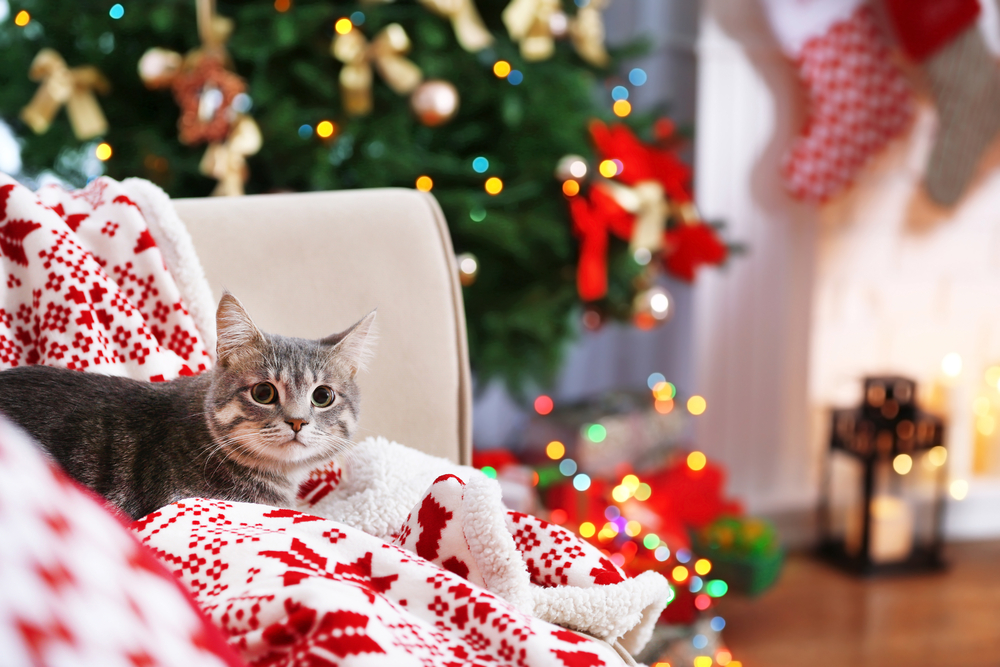Written by Rene Knapp, a long-time TICA member, and dedicated cat lover.
It’s Christmas and everyone is excited; the children, the parents and the cats can sense that something is in the air. It’s the time to enjoy the holidays, but also the time to take some extra precautions with our kitties, because there will be many dangers facing them over the holidays. Here are some tips to help you keep your cat safe over the Christmas season.
Choosing the Right Christmas Tree for Cat Safety
I know the rules say it is better to have an artificial tree than a real one for cat safety. But truthfully, they both come with their own set of safety concerns, so it is whatever you are most comfortable with. Whether real or fake, the rule of thumb is the same – put the tree up and leave bare for at least three days. This allows you to keep an eye out to see if they are nibbling at the fake needles, or some trees often come with pine cones sprayed with fake snow, both of which present a hazard to your cats health. If you find that your cat is eating or attempting to eat three tree or any accessories, remove it immediately, as cats have very delicate stomachs and it only takes a moment to end up with a costly vet bill.
As for a live tree, many cats like to sleep under the tree and smell the outdoors. Never put any type of chemicals in the tree water though, because cats will drink from the tree stand and you want to avoid any chance of poisoning your feline friend.
After leaving the tree bare for at least three days, most cats are used to seeing it in the house and it is no longer interesting. If you find they are climbing the tree, try to ignore it. When they don’t get yelled at, cats figure they are not doing anything wrong so they tend to get bored after they have thoroughly investigated the new presence in the house and leave it alone.
Decorating Safely: Ornaments, Lights, and Tinsel
Keeping your cat safe at Christmas also means knowing how to decorate without putting them in danger. For the Christmas lights:
- Put up the lights and turn them on at night so your cats can get used to them.
- Make sure your lights are unplugged when you are not home
- Line them with bitter apple when they are plugged in to prevent curious kittens from chewing the wires. That usually deters them rather quickly.
If you us garland, choose the wooden ones, rather than any type of tinselly material. Cats will play with and eat tinsel, and it is very dangerous, causing blockages that result in expensive emergency surgery.

Then it’s time to tackle the ornaments:
- Use wooden and fabric ornaments on the bottom of the tree so the cats can safely bat at them.
- Any breakable ornaments should be put up high where they are less likely (notice I said less likely) to get knocked off the tree and broken. It’s the best way to protect your special Christmas treasures and not have to keep them safely in a box instead of enjoying them on your tree.
Please do not use artificial snow (it is extremely toxic to cats) and candles on the tree are a definite no-no. Here’s more information about what to do if your cat does ingest artificial snow and how to avoid your cat becoming seriously ill. Flames are very hard for a cat to resist checking out and the cat and the house could be in serious trouble.
Holiday Plants: A Poisonous Threat to Cats
As beautiful as holiday plants are, remember that holly, mistletoe, and Poinsettias, are poisonous to cats, all in varying degrees. If you really feel you need to have plants to make your holiday complete, place them where your cat cannot get to them to make sure your cats stay safe over Christmas. Wondering if your other plants may be posing an unrealized threat to your cats? Check out our guide on identifying potentially poisonous plants.
Food Safety for Cats During the Holidays
As you give your cats special treats of human food, it is important to remember that some foods do not belong in feline stomachs. Never give your cats chicken or turkey bones as they can splinter and become lodged in your cat’s throat or puncture the intestines and stomach. Chocolate is very dangerous, so you’ll need to keep your gift boxes of chocolate in the cupboards. Make sure your trash can is not easily accessible — turkey bones wrapped in aluminum foil can be doubly dangerous if ingested.

Wrapping Gifts and Managing Decorations
Ribbons and bows should not be left under the tree unsupervised as it’s very tempting for cats to chew on them. If you really love wrapping up those perfect gifts, keep them in your closets until “Santa” or your holiday visitors arrive.
Handling Guests and Strangers
Speaking of visitors, that brings us to how your cats react to strangers. Cats are like people, some are gregarious and friendly, others suspicious and still others shy. Be aware of your cat’s feelings and give the cat the option of mingling with the guests or retiring to a nice, quiet area of their own.
When buying toys, make sure you thoroughly check them first. There should be nothing glued on that the cat can pull off and swallow, and, if the toy is small enough for a cat to swallow, don’t give it to your pet.
Kittens as Christmas Gifts: A Word of Caution
I maintain kittens should not be Christmas gifts. If you insist on bringing one home, please do not tell your children it is from Santa. How horrible would it be if there was something wrong with your kitten? Could you ever explain to a child why Santa would give a sick kitten as a gift? If you feel you have to have a kitten on Christmas Eve, then please give the baby its own room, plenty of food and fresh water and alone time. You do not want to cause undue stress on a baby. Babies get sick easily and stress causes sickness. The new baby has just lost its mother and siblings and has been thrust into a very confusing situation, so while you are fulfilling the parental obligation of making your children happy, please also remember to do what’s best for the newest member of your family.
Please ensure your cats are safe and happy, inside and warm. Kitties should never be let outside – that’s what we have kitty litter for.
These tips will help you keep your cat safe at Christmas while still decorating your home and celebrating the holiday season.






















































































